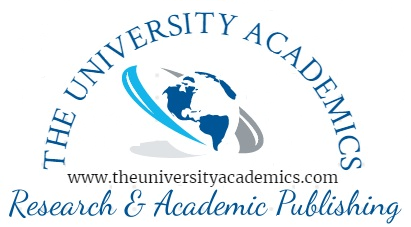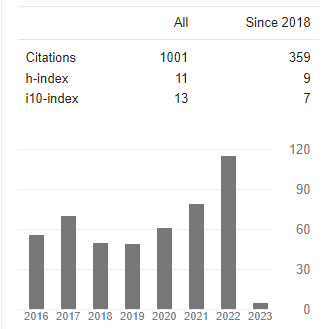CONTEMPORARY ISSUES IN COACH EDUCATION AND LEARNING COACH LIFELONG LEARNING: A REVIEW
Abstract
Becoming a good coach is not just about obtaining a degree in coaching or getting certified by an International or National organization. It is also about improving own theoretical knowledge and practical skills through practicing coaching and through participating in various refresher courses and seminars organized by various professional bodies. Practically speaking, it is only possible to stay at the top of the coaching cohort by constantly refining own professionalism through the lifelong development which comes through practice, learning and education. The forms of learning and education can be different, and it is predominantly in the hands of the coaches to pick any of those available forms and to keep own qualifications updated and to keep providing excellent services to their employers and to the community.
Downloads
References
Campbell T., Sullivan, P.(2005).The effect of a standardized coaching education program on the efficacy of novice coaches.AVANTE11 (1), 38-45.
Cassidy T., Jones R.L., Potrac P.(2004). Understanding sports coaching: the social, cultural and pedagogical foundations of coaching practice. Routledge, London.
Eraut M.(2004). Informal learning in the workplace.Studies in Continuing Education26 (2), 247- 273.
Gilbert W., Trudel P.(2001). Learning to coach through experience: reflection in model youth sport coaches. Journal of Teaching in Physical Education21 (1), 16-34.
Gilbert W.D., Trudel P.(2004). Analysis of coaching science published from 1970-2001. Res. Q. Exerc. Sport 75 (4), 388-399.
Jarvis P.(2006). Towards a comprehensive theory of human learning. Routledge, London.
Jones R.L.(2006). The sports coach as educator: reconceptualizing sports coaching. Routledge, London.
Jones R.L., Armour K., Potrac P.(2004). Sport coaching cultures: from theory to practice. Routledge, London.
Lyle J.(2002). Sport coaching concepts: a framework for coaches' behaviour. Routledge, London.
Lyle J. & Cushion C. (Eds). (2010). Sports Coaching.Professionalisation and practice.Elsevier. Mallett C.J. (2010). Becoming a high-performance coach: pathways and communities. In: Lyle,
J. & Cushion, C. (Eds.), Sports Coaching. Professionalisation and practice. Elsevier, pp. 119-134.
Review of the EU 5-Level Structure for the Recognition of Coaching Qualifications, 2007.European Network of Sport Science, Education &Employment.27 pp.
Rynne S. (2008). Opportunities and engagement: coach learning at the Queensland Academy of Sport. The University of Queensland, Unpublished Doctoral thesis. Australia.
Salmela J.H.(1995). Learning from the development of expert coaches.Coaching and Sport Science Journal2 (2), 3-13.
Salmela J.H., Moraes L.C.(2003). Development of expertise: what do experienced athletes remember? In: Starkes, J.L., Ericsson, KA. (Eds.), Expert performance in sports: advances in research on sport expertise. Human Kinetics, South Australia, pp. 275-294.
Schempp P.G., Tan S., Manross D., et al.(1998). Differences in novice and competent coaches' knowledge.Teachers and Teaching: Theory and Practice4 (1), 9-20.
Schempp P.G., Templeton C, Clark E.(1999).The knowledge acquisition of expert golf instructors. In: Farrally, M.R., Cochran, A.J. (Eds.), Science and golf III: proceedings of the World Scientific Congress of Golf. Human Kinetics, Champaign, IL, pp. 295-301.
Schempp P.G., McCullick B. (2010). Coaches' expertise.In: Lyle, J. & Cushion, C. (Eds.), Sports Coaching. Professionalisation and practice.Elsevier.
Taylor B. & Garratt D. (2010). The professionalisation of sports coaching: definitions, challenges and critique. In: Lyle, J. & Cushion, C. (Eds.), Sports Coaching. Professionalisation and practice. Elsevier, pp. 99-117.
Trudel P., Gilbert W.(2006). Coaching and coach education. In: Kirk, D., O'sullivan, D., Macdonald, D. (Eds.], Handbook of physical education. Sage, London, pp. 531-554.
Trudel P., Gilbert W. &Werthner P. (2010).Coach education effectiveness. In: Lyle J. & Cushion C. (Eds), Sports Coaching. Professionalisation and practice.Elsevier.
Wright T., Trudel P., Culver D.(2007). Learning how to coach: the different learning situations reported by youth ice hockey coaches.Physical Education and Sport Pedagogy12 (2), 127-
Online resources
http://www.icce.ws/priorities/magglingen.htm
Retrieved on June 24th 2015
http://www.footballsouth.co.nz/index.php?id=376
Retrieved on May 23rd 2014
http://www.coachfederation.org/icfcredentials/continuingeducation/
Retrieved on July 26th 2014















